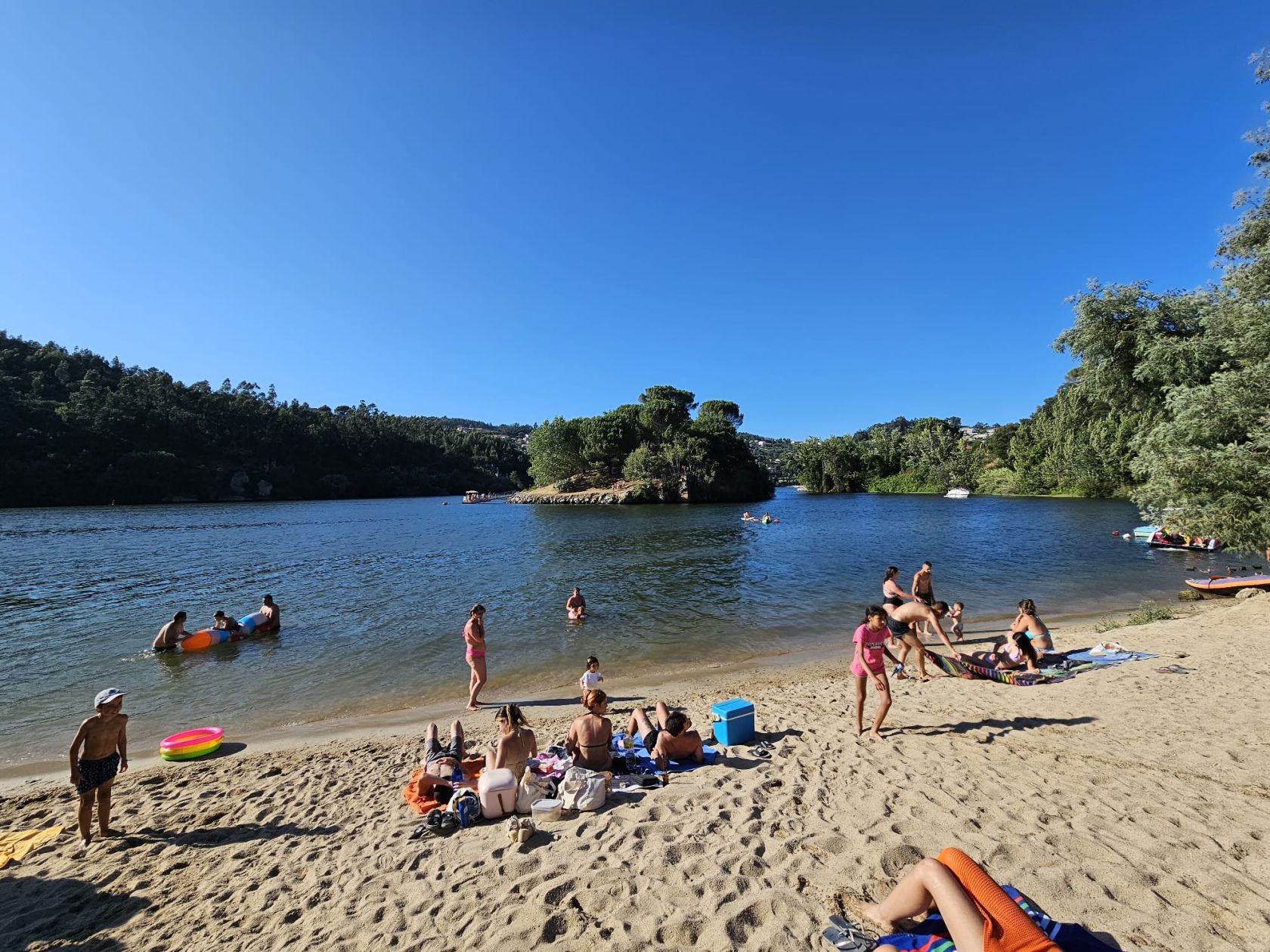If you're looking for a place to enjoy the beauty of nature and the richness of history, Praia do Castelo de Paiva, also known as Praia do Castelo, is the perfect destination for you. This warm-water river beach is located next to two rivers, the Douro and the Paiva, and offers a variety of attractions and activities for visitors of all ages. From a quiet read on the towel to a funny water sports practice, there is space for everyone.
One of the main features of Praia do Castelo de Paiva is the small island that lies in the middle of the river, known as Ilha dos Amores. According to legend, this island was once a fortified castle that defended the Christians from the attacks of the Moors. It was also the place where a love story between a Christian knight and a Moorish princess took place.
The island is accessible by boat or canoe and it is a great spot for picnics, fishing, or simply relaxing in the sun. The island also has a pedestrian trail that allows visitors to explore its natural beauty and wildlife. We have also seen that many youths were taking advantage of the place's altitude to take dips.

Another attraction at Praia do Castelo de Paiva is the beachside restaurant, which offers different snacks and fresh beverages. This is a pleasant place to socialise after a long day at the beach. The river beach has a sandy area that is usually very busy and where visitors can sunbathe or play games. The beach also has a barbecue area, a shaded picnic area, and a first aid station. Parking is also not a problem in Castelo de Paiva Beach.
The water temperature is pleasant, despite being a river beach, which impressed me. Although the water can be dark due to sediment from the fires that affected the Paiva region, it is clean. For lovers of water sports, Praia do Castelo de Paiva offers several options, such as canoeing, kayaking, jet skiing and boat trips. There is a small store on site where you can rent this equipment.

Praia do Castelo de Paiva is not only a place to enjoy nature, but also to learn about history and culture. The beach is part of the Rota do Românico (Romanesque Route), which is a tourist circuit that showcases the architectural and artistic heritage of the region from the 11th to the 14th centuries. Some of the monuments that can be visited along this route are the Monastery of Santo André de Ancede, the Church of São Martinho de Sardoura, and the Bridge of Esmoriz.
Praia do Castelo de Paiva is a river beach that has something for everyone. Whether you're looking for relaxation or adventure, you'll find it here. It's a place where you can connect with nature and history, and create unforgettable memories with family and friends. It's also a fantastic place to get away from the normal beaches and delve deeper into the nature that Portugal has to offer.
Castelo de Paiva
Before heading to the river beach, which was our final destination, we stopped by the village to eat and find out a bit more about it. It was lovely! Castelo de Paiva is a small well-known village surrounded by incredible views over the River Douro. As it is located in the Douro region, it offers fertile land for agriculture.

Passadiços de Paiva
If you have time to go a little further afield, you can also visit the Passadiços do Paiva (Paiva Walkways in English), which has a 30-minute drive from the Castelo River beach. With a suspension bridge, incredible landscapes and stunning viewpoints, you can't miss this experience, which journey starts either in Espiunca or Areinho.
The Paiva Walkways have been widely known for their natural beauty and include several wooden walkways along the Paiva River in Arouca, totalling around 8.7 kilometres in length, most of which are wooden walkways that follow the rocky slopes of the left bank of the Paiva River. Perhaps because of their beauty, but also because of their geology and history, the Paiva Walkways have won several tourism and conservation awards.
Paula Martins is a fully qualified journalist, who finds writing a means of self-expression. She studied Journalism and Communication at University of Coimbra and recently Law in the Algarve. Press card: 8252
















